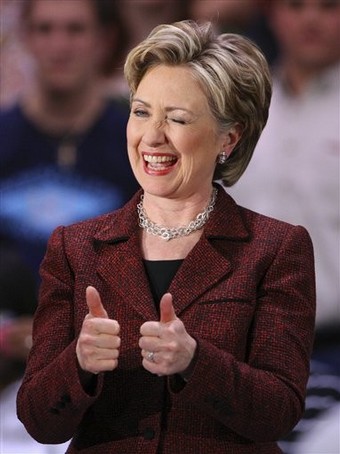Welcome to DU!
The truly grassroots left-of-center political community where regular people, not algorithms, drive the discussions and set the standards.
Join the community:
Create a free account
Support DU (and get rid of ads!):
Become a Star Member
Latest Breaking News
General Discussion
The DU Lounge
All Forums
Issue Forums
Culture Forums
Alliance Forums
Region Forums
Support Forums
Help & Search
Religion
Related: About this forumAn Atheist in the White House: Secularism and the American Presidency

April 17, 2016 at 9:00 am
By Lizzy Schick
What does it take to be electable? The answer to that question underlies the successes and failures of any democracy, and the United States is no exception. The demographic makeup of America’s elected offices has slowly diversified over the years, with one exception: religious affiliation. Almost the entire Congress identifies as Christian, as has nearly every president and vice president to date. Article Six of the Constitution mandates that no religious test or qualification can render a candidate ineligible for any public office, yet it is plain that government remains somewhat hamstrung by religious values. In fact, voters oppose an atheist candidate more than one that has committed adultery or one that has no experience in Washington. Atheism is not only unappealing in a candidate but also a barrier to entry in some cases; in seven states—all in the Bible Belt—legislation bars atheists from running for office, though these acts are technically unenforceable.
This election season, the question of whom the American public considers electable has become particularly salient. During the current election cycle, the major candidates from both parties have expressed their deep commitment to faith—some Christianity, others Judaism—demonstrating that religiosity remains a de facto requirement for office. Is an atheist president electable in 2016? More importantly, should secular practices and values have a more prominent place in our government?
Bias Against Atheists
Americans tend to dislike atheists, an attitude based in traditional biases. Atheists seem particularly threatening to Christian morality and value systems, even when compared to other stigmatized groups such as American Muslim and LGBTQ+ populations. This fear of secular immorality has psychological roots. Matthew Baum, an expert on public policy at Harvard’s Kennedy School of Government, told the HPR that, in many cases, religion serves as a sort of heuristic or mental shortcut that can communicate a candidate’s likely values and policies to voters. America’s comparative religious fervor, which forces candidates to disclose their personal religious views, is thus prompted—at least in part—by a need to know candidates at a glance.
Because of the pressure to hold a religious identity, particularly of a Christian religion, politicians often feign religiosity. Donald Trump’s “Two Corinthians” gaffe exemplifies these often-farcical efforts to court evangelicals and other religious groups during elections. The practice of cultivating a religious persona occurs on both sides of the aisle as Democrats . Only certain religions possess this appeal, of course. Rumors that President Obama was Muslim captivated his opponents and enraged his supporters during his campaign for Senate in 2004 and for president in 2008. Still, polls suggest that Americans by and large would prefer a candidate of any mainstream religion to a secular one.
http://harvardpolitics.com/united-states/an-atheist-in-the-oval-office-secularism-and-the-american-presidency/
InfoView thread info, including edit history
TrashPut this thread in your Trash Can (My DU » Trash Can)
BookmarkAdd this thread to your Bookmarks (My DU » Bookmarks)
1 replies, 588 views
ShareGet links to this post and/or share on social media
AlertAlert this post for a rule violation
PowersThere are no powers you can use on this post
EditCannot edit other people's posts
ReplyReply to this post
EditCannot edit other people's posts
Rec (1)
ReplyReply to this post
1 replies
 = new reply since forum marked as read
Highlight:
NoneDon't highlight anything
5 newestHighlight 5 most recent replies
= new reply since forum marked as read
Highlight:
NoneDon't highlight anything
5 newestHighlight 5 most recent replies
An Atheist in the White House: Secularism and the American Presidency (Original Post)
rug
Apr 2016
OP
Fumesucker
(45,851 posts)1. Of course Senator Obama isn't a Muslim
As far as I know.
